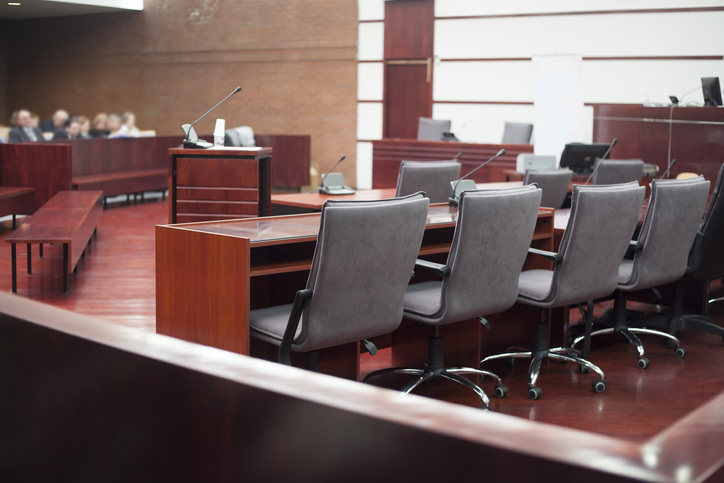
Read on to find out how the legal sector has been affected this week by the ongoing COVID-19 pandemic.
Legal Key Workers Identified
The list of legal key workers during the coronavirus pandemic was published at the beginning of the week:
- Advocates required to appear before a court or tribunal (remotely or in person), including prosecutors and solicitor-advocates
- Legal practitioners required to support the administration of justice including duty solicitors (police station and court), barristers, solicitors, legal executives, paralegals and others who work on imminent or ongoing court or tribunal hearings
- Solicitors acting in connection with the execution of wills
- Solicitors and barristers advising people living in institutions and deprived of their liberty
Update: Postponed Law Firm Recruitment Schemes
- Addleshaw Goddard’s Easter placement scheme has been cancelled in London and Edinburgh
- Burges Salmon has postponed their spring vacation scheme in Bristol
- Gowling WLG has postponed spring vacation schemes in Birmingham and London
- HFW postpones their spring vacation scheme
- Latham and Watkins have cancelled both its Spring Vacation Scheme and their open day held for first and second-year students.
- Mayer Brown has postponed its spring vacation scheme
- Mishcon de Reya has postponed its spring vacation scheme
- Norton Rose Fulbright has postponed its spring vacation scheme
- Sidley Austin has postponed its spring vacation scheme
- Stephenson Harwood has postponed its spring placement scheme
- TLT has postponed its Easter vacation scheme in Bristol
- White and Case have postponed its spring vacation scheme
Some law firms have said they will reimburse reasonable expenses incurred by students who have planned for their spring vacation schemes. They include pre-booked flights, train tickets or hotel accommodation.
The SRA Agrees Not to Postpone LPC Exams
The Solicitors Regulation Authority has agreed to relax its stringent rules on exam procedures to allow Legal Practice Course exams to be taken online. This comes after they received criticism from the profession.
The SRA normally requires face-to-face assessment for the LPC and had initially postponed exams until the autumn. However, the Junior Lawyer Division of the Law Society wrote a letter criticising the decision, while a blog written by academic Steven Vaughan said that the SRA may have failed to acknowledge the situation as exceptional.
The SRA now says, “Having listened to feedback, including from training providers, law firms and other groups, we are relaxing our current assessment requirements for all parts of the Legal Practice Course.” The regulator goes on to explain they have chosen a form of remote assessment called proctoring, proctored exams are timed exams that students take while software monitors their computer’s desktop, webcam video and audio.
Jury Trials Put on Hold
The Lord Chief Justice announced on Monday that new trials will be halted in the Crown Court until specific safety arrangements are made to secure hygiene within the buildings. Lord Burnett has said that no jury trials or other physical hearings can take place unless it is proven that it is safe to do so. Therefore, no new trials have started this morning and jurors summoned are being contacted to ask them to stay at home, although they may be called in later.
Lord Burnett goes on to say that all hearings in the Crown Court that can lawfully take place remotely should do so and other hearings without juries should continue as long as arrangements for distancing can be made.
Read about some cases that have been overshadowed by the pandemic.
Talks Ongoing Over the Witnessing Requirements When Writing a Will
The government is urgently looking to change requirements around witnessing wills in the wake of the coronavirus outbreak.
Currently, a will must be signed by the testator and two independent witnesses, but both The Law Society and The Ministry of Justice are discussing ways to change this and make it quicker to register lasting powers of attorney. Amongst other options up for debate are an Australian-style approach which would allow judges more flexibility in deciding when a will has been constituted or a more European style system where testators could witness wills electronically.
James McNeille, head of private client at Royds Withy King has said, “with the coronavirus pandemic moving as quickly as it is, this is seeing more people wanting to draw up a will and experiencing practical difficulties of execution.”
Keep safe, stay inside!
Words: Alicia Gibson
Missed last week’s update? Read it here!
Read More:
- Business Sectors Thriving in the Face of Crisis
- How to Make the Most of Self Isolation to Revise for Your Law Exams
- What can the Legal Industry Learn From COVID-19?
